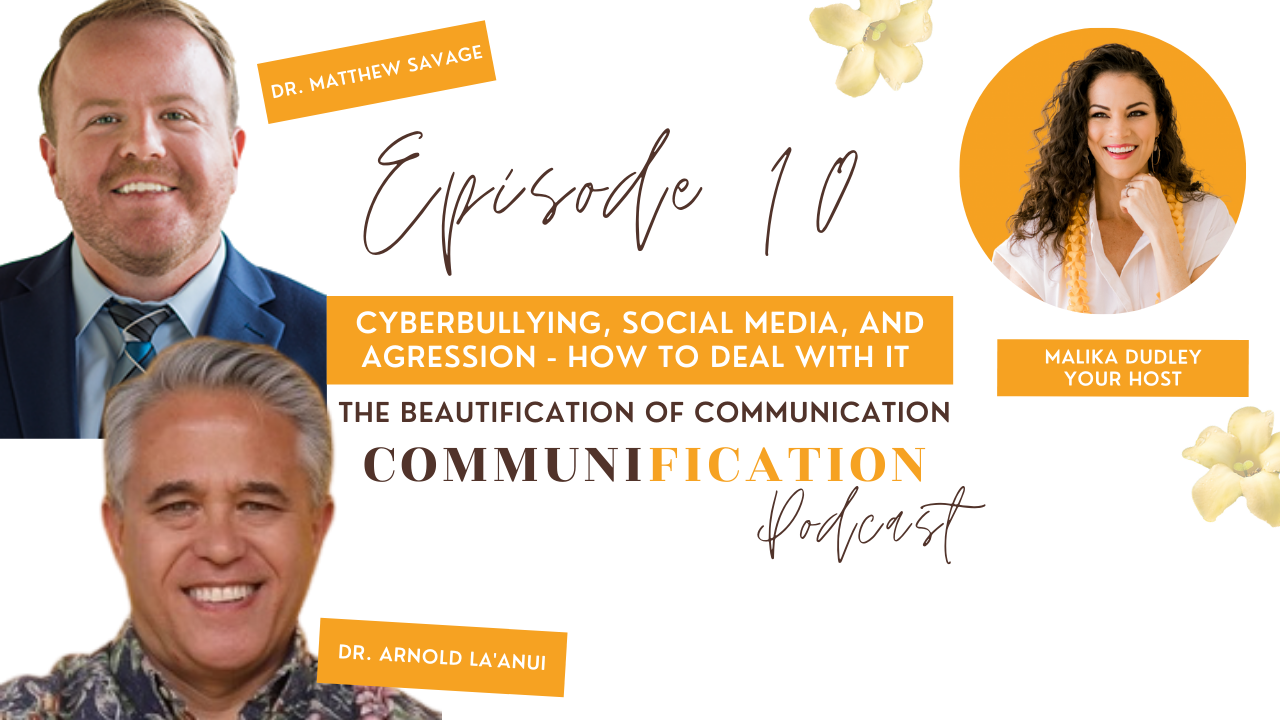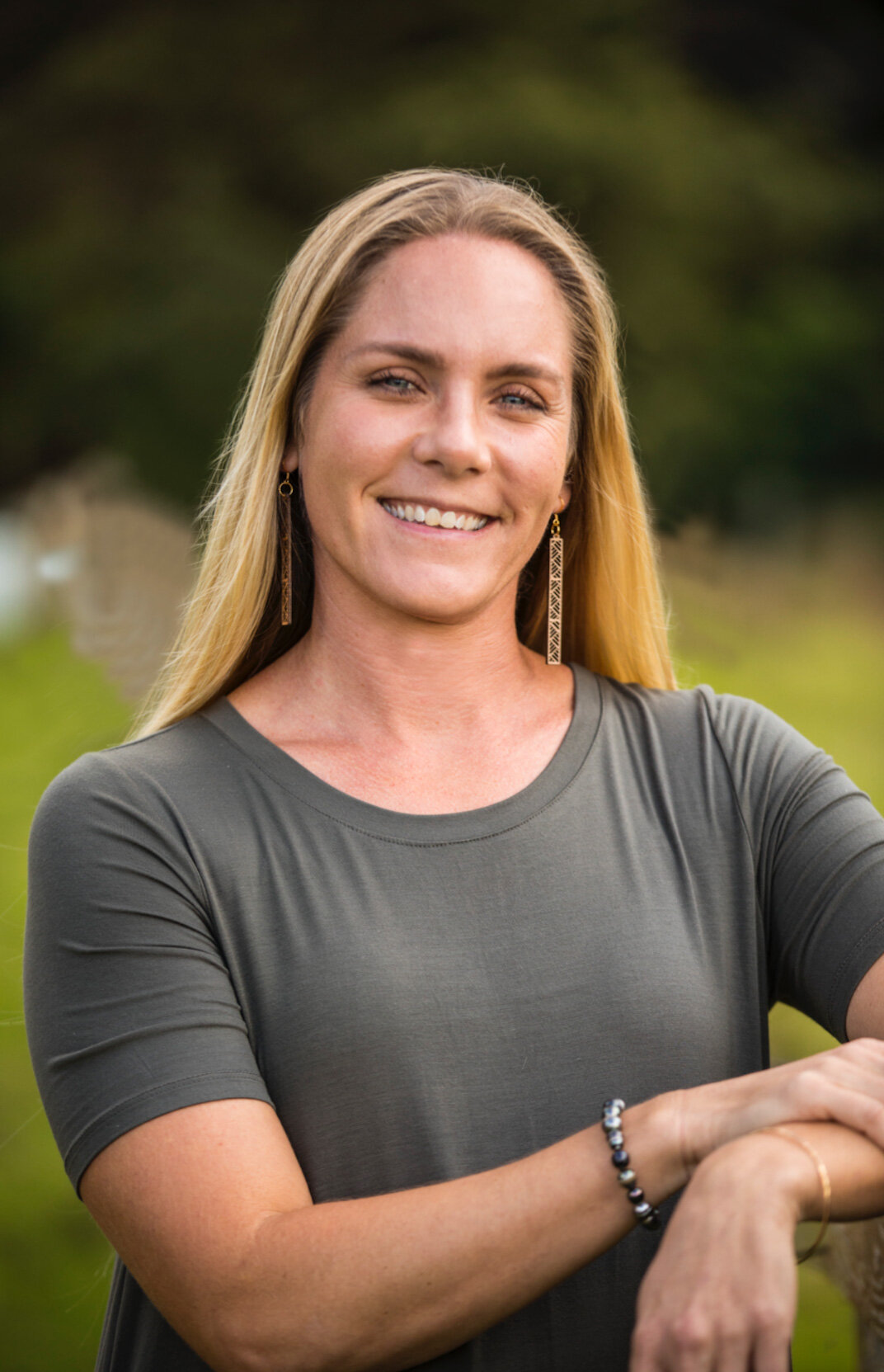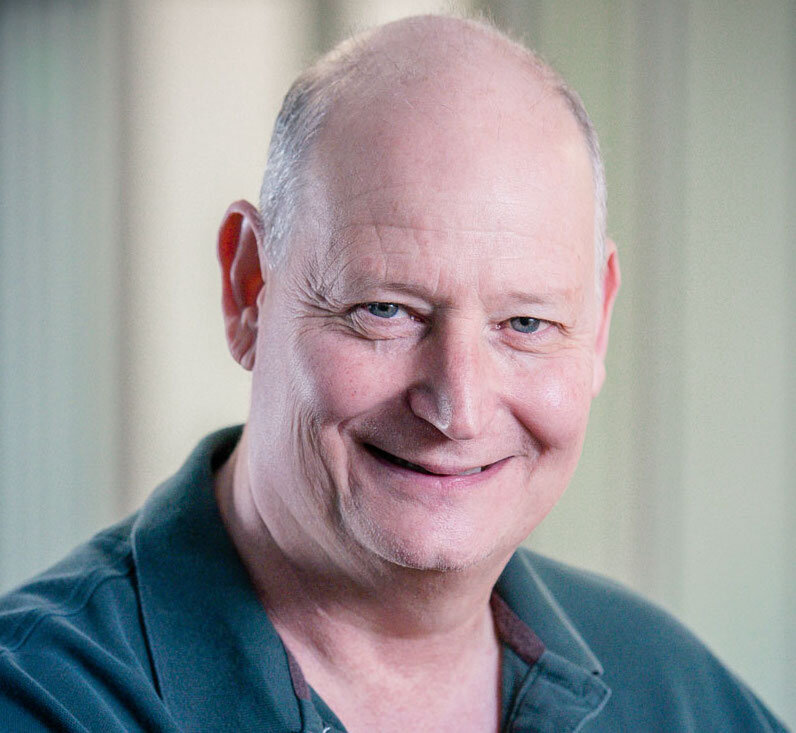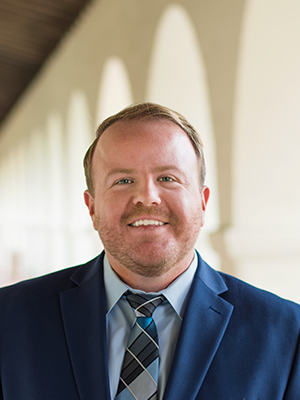Ep. 10: Cyberbullying, sexting, social media, and aggression - How to deal with it; Dr. Matthew Savage + Dr. Arnold La’anui
Below you will find the show notes for “Episode 10” of the Communification Podcast.
Mahalo for listening! Welcome to the ‘ohana!
Mahalo to Maui Tutoring, Maui Pizza Truck, and an anonymous donor for donating to the Maui Food Bank as a part of our pre-roll giveback program!
Visit Maui Pizza Truck’s website to order from this Up Country, Maui favorite!
Maui Tutoring creates a solid academic foundation to provide the child with the confidence & skills needed for future academic excellence. Weekly/Monthly Sessions or a whole complete year curriculum. PreK-Grade 4. No contracts. (808) 500-8881 / FB & IG: Maui Tutoring
In this episode we talk to Dr. Matthew Savage and Dr. Arnold La’anui about cyberbullying.
Main takeaways
Eighth grade seems to be the tipping point when it comes to cyberbullying issues
We learn new terms: doxing, flaming, trolling, cyber stalking…
How the five trials of adolescence (physical, parental, social, occupational, sexual) factor in to cyberbullying
How the Skills Deficit Model & General Regression Model help to explain cyberbullying
When bystanders should and shouldn’t intervene
How to prevent cyberbullying: the rules of publishing
What to do if you have been cyberbullied
Time codes
GUESTS: Dr. Arnold La’anui + Dr. Matthew Savage
[08:19] DR. SAVAGE IS PASSIONATE ABOUT MAKING A REAL, PRACTICAL DIFFERENCE THROUGH HIS RESEARCH
[09:37] DR. LA’ANUI’S BACKGROUND IN VIOLENT CRIME AS A PART OF THE FBI, SWAT TEAM, & CYBER SQUADS PUT HIM ON THE GROUND FLOOR TO WATCH THE PHENOMENON AS IT UNFOLDED
[11:58] DEFINITION OF CYBERBULLYING, DOXING, CYBER STALKING, FLAMING, TROLLING
[15:39] ADULTS GET CYBERBULLIED TOO
[16:28] HOW PREVALENT IS CYBERBULLYING?
[17:49] HIGH SCHOOL STUDENTS SHARING NUDE IMAGES OF THEMSELVES
[18:57] YOUTH ARE DEVELOPMENTALLY IMMATURE AND DON’T GRASP THE LONG TERM CONSEQUENCES
[20:06] SPECIES WANT TO REPRODUCE - WHAT DOES THAT HAVE TO DO WITH CYBERBULLYING?
[24:21] THE COMPETITION FOR MATES LEADS TO RIVALRY
[26:57] OTHER FACTORS: GENERATIONAL, ENVIRONMENTAL, SOCIAL
[29:50] LEGALLY DIFFICULT TO KEEP UP WHEN THE TECH IS CHANGING
[30:40] IT’S COMPLICATED - TECH IS CHANGING CONSTANTLY
[31:22] HOW DO THE AFFORDANCES OF TECHNOLOGY: IDENTIFIABILITY, PERSISTANCE, & ACCESS CONTRIBUTE TO CYBERBULLYING
[31:55] IT’S DIFFICULT TO REMOVE SOMETHING FROM THE INTERNET - WHAT TO DO?
[35:57] SKILLS DEFICIT MODEL
[37:19] GENERAL AGGRESSION MODEL
[38:12] LISTENER QUESTION ABOUT BYSTANDERS INTERVENING WHEN CYBERBULLYING IS OCCURRING
[43:47] PEOPLE MIGHT INADVERTENTLY BECOME BULLIES THEMSELVES
[44:22] IT’S EASIER TO ADOPT A BEHAVIOR THAN TO JUST NOT DO ANYTHING
[46:07] RULES OF PUBLISHING TO TEACH OUR YOUTH
[47:41] RESEARCH-BASED COMMUNICATION STRATEGIES FOR HOW TO DEAL WITH CYBERBULLYING
[51:16] NUDE PICS - LEGALITY, COMMUNICATION, AND APPROPRIATENESS
[58:16] WHAT PARENTS CAN DO
Dr. Matthew Savage bio
Matthew W. Savage (Ph.D., 2012, Arizona State University) is an associate professor of health and interpersonal communication who is passionate about teaching and research. His research interests focus on the intersection of health, interpersonal, and mass communication. Dr. Savage’s scholarship is conducted within the context of creating and supporting health communication campaigns aimed to deter negative and risky behaviors among adolescents and young adults. To that end, Dr. Savage’s research is centered on team science and community approaches, relying on strong partnerships with educational institutions, government organizations, and non-profits.
Currently, he is working on various projects that address adolescent bullying/cyberbullying, oral health promotion, and reciprocal violence. His research has been translated to clinical practice via external and internal funding mechanisms. When it comes to teaching, Matthew enjoys integrating new technology into his courses and using discussion-based formats as a catalyst for cognitive and affective learning. His teaching philosophy focuses on participatory engagement, the importance of establishing the relevance of course material to real-world experiences, and challenging students to exceed their expectations. He is recognized with prestigious university teaching awards at the University of Kentucky, the University of Hawaii, and Arizona State University.
Dr. Arnold La’anui bio
Dr. Arnold La’anui is a recipient of Hawaii's TOP COP award, an 8 year veteran of FBI SWAT and worked as an FBI Special Agent. For nearly 20 years, he served as an FBI Advanced Instructor and as Faculty of the FBI Academy where he designed curricula and coached teachers. Dr. La’anui has authored numerous award-winning initiatives that include the Internet Safety Awards, Hawaii's Adopt-a-School curriculum, and the FBI PROVE Project.
When he saw training as a lawyer and crime fighter weren't effective in "preventing" crime, he returned to school and earned his second doctorate pioneering research in the areas of risk forecasting, big data and predictive analytics. In 2019, he left the Bureau to answer a new call to service. Today, he works in public education where he designs curricula, connects industry to scholarship, and hopes to inspire a new generation of civic-minded leaders.
More background on Dr. La’anui
EPISODE 10:
Malika:
Aloha Dr. Savage and Dr. Arnold La'anui! I feel like I know you both by first names though… my mother-in-law heard Arnold speak and was like, you have to look into his work… and of course he used to deal with the press and I'm the press and Matt, he wasn't a "doctor" when I met him! We went to college together at UH-Manoa. It's so nice to see your face again, but now I guess I will welcome you formally. Welcome Dr. Savage and Dr. La'anui to the show.
Dr. Arnold La'anui:
Very happy to be here. Thank you.
Dr. Matthew Savage:
Yes, Mahalo. It's so good to see you too, Malika and you can always call me Matt.
Malika:
Oh, thank you. Well, today's communication topic is cyber bullying. We'll define that in just a second and get into the research, but first we'd like to know where your passion comes from. And if you want to mention anything about your area of research or expertise, that helps us to understand why you're so interested in this subject, that would be great. So let's, let's start with Dr. Savage.
DR. SAVAGE IS PASSIONATE ABOUT MAKING A REAL, PRACTICAL DIFFERENCE THROUGH HIS RESEARCH
Dr. Matthew Savage:
Cool. Thanks, Malika. I did the communication masters program, now Communicology, at the University of Hawaii at Manoa, and I was taking a health communication course in the last semester before I was heading off to Arizona state and I just saw the power that we had to be able to persuade people, to adopt behavior change, to improve communities and helping communities. And at the same time I was working with Dr. Amy Hubbard, who we both know and love about some programs helping retention efforts at UH. And all of our findings were speaking to the central role of relational management.
And so as I continued all of my work in public health promotion and in cyberbullying research, really focusing on the role of aggression in skills that we'll get into today.
I just really saw a place for us as researchers to be able to make a really big practical difference in the lives of adolescents and college students who are going through a tough time when it comes to how communication changes via technology and unfortunately, sometimes that can be problematic.
Malika:
Well, very, very interesting area of research I'm sure... and I can't wait to hear what you have to say. Dr. La'anui, how about you?
DR. LA’ANUI’S BACKGROUND IN VIOLENT CRIME AS A PART OF THE FBI, SWAT TEAM, & CYBER SQUADS PUT HIM ON THE GROUND FLOOR TO WATCH THE PHENOMENON AS IT UNFOLDED
Dr. Arnold La'anui:
First kind of got interested in this subject, maybe about 20 plus years ago, right around the early 2000s, I was on an FBI SWAT team. I was working violent crimes and the FBI started putting together cyber squads all around the country. And lo and behold, I found myself on a cyber squad. I had no background in tech, and the FBI sent me to great schools. I went to a whole bunch of hacking schools and got really familiar with the technology.
And the more I started to investigate violent violations of federal laws having to do with crimes, the more I started to see and witness our younger adults and our children becoming both victims and offenders at the same time. And just seeing this world as the wild west and the new frontier, and then all of a sudden web 2.0 sets in, and then these things, these smartphones start coming out for the first time and a whole new array of violations that we had never imagined before.
I guess now looking back kind of privy to be on the ground floor watching, you know, I remember in 2004, when I gave a presentation about online safety to a group of high school kids, and we were hearing feedback of what we now know as sexting, the word didn't exist just yet. And then all of a sudden, you know, over the course of a summer, this whole new phenomenon blows out. And then of course, as the years progressed, cyberbullying becomes a thing.
So I had always been really passionate about trying to service that younger generation of individuals because they were touching these technologies. And it's kind of as if you took your set of car keys and you throw them at a teenager and said, here you go drive, but nobody took a driver's ed course.
And so I had always grown very passionate about trying to see if we could service that group of individuals in the hopes that as a mature and as they become an adult, they become more responsible people with these technologies. So that when they're adults, they don't step into the fray or accidentally do something that we could have corrected earlier through prevention, through education, as a better means of trying to service that future young citizen.
Malika:
We've got boots on the ground, and we've got the academic research. This is going to be riveting. I can already tell. So let's start with the basics. So maybe Matthew, you can define some terms for us. So what is cyber bullying? Maybe define flaming or other terms that are related to cyber bullying just to help us lay that foundation.
DEFINITION OF CYBERBULLYING, DOXING, CYBER STALKING, FLAMING, TROLLING
Dr. Matthew Savage:
Yeah. So this is something that there wasn't a lot of agreement about back in 2004, but I think people have pretty much come to the consensus that cyber bullying is the deliberate and repeated misuse of communication technology to threaten or harm one another.
But like Dr. La'anui said, we often think about this as like A to B problem, a perpetrator to victim. But the thing is that this gets caught up in interaction and relationship and you brought up the term sexting, and it's a perfect example of, this is how I actually learned a lot about this topic in the beginning was around that same time, I was asked by the Attorney General's office with my advisor at ASU to help them determine the effectiveness of the trainings that were being done in middle schools about internet safety. And they were doing an awesome job, but it wasn't getting at the relational aspect of it. And the fact that when kids break up with one another, they do really mean things.
So a term like flaming. Is used usually when one person to another is going to stand like a direct or insulting message. It's usually pretty personal. Whereas something like trolling, which I think we're going to talk about later is a little less personal. Now a victim would never say it didn't feel personal, but it's going to be usually more in a public space.
But there's lots of interesting terms. And the thing is that they're always changing because of what we just mentioned, that this is like the wild west of the internet.
So I pulled up a couple that maybe people haven't heard of, or people could keep in mind in terms of protecting themselves. So one is doxing.
Think of this like documents. So doxing, we think about all the information we've put out there in different places. Any one piece of that information might not be too concerning if someone knew about it, but if someone really wanted to cyber stalk you, which is definitely a crime and I'm sure Dr. La'anui can speak to that, they could put together evidence from these different areas and kind of paint a picture of your behaviors, your financial situation, things that you're doing with your family, et cetera. So it's kind of like someone picking up the breadcrumbs and piecing it together and then sharing that information in a way that you wouldn't want to.
I mentioned cyber stalking. That's definitely more serious. This is when things are going to happen, usually we use the word cyber-stalking when there's a bleeding over of the cyberbullying to something in person, but it doesn't have to be, it just can accompany offline stalking. But this is when there's going to involve things like monitoring or false accusations. There might be threats of physical harm being included in the messages, but then there's lots of other terms.
I won't define all of them, but like trickery, masquerading, we mentioned trolling. Even dissing is a term. So the interested listener can Google some of these and find are all the mean ways that people can interact with one another.
But it's all about being deliberate, it being repeated, and there used to be an emphasis on a power imbalance between the perpetrator and the victim. But in recent years, that powering balance has gotten less attention as cyber bullying and traditional bullying are thought of as more separate constructs than just an extension of one another.
Malika:
So interesting. You know, I asked listeners to share their experiences and I heard things like "my life has been threatened" or "someone lied about me online."
Someone said "someone pretended to be someone else and communicated with my friends and loved ones to spread rumors." "People or bots are trolling me," "someone posted private photos of me." And those were all of course shared with me anonymous. There were a lot of different types of experiences. And what was really interesting because we've been talking about our youth, but all of these experiences came from adults.
ADULTS GET CYBERBULLIED TOO
Dr. Matthew Savage:
And that's something that I've grown a bigger heart for because when I first started investigating this, I thought of it as an adolescent in high school issue. But as I talk about it in classes like relational communication, conflict management, persuasion even... the majority of students in that room share with me stories like the ones that you're probably hearing now.
And in most of my studies, me and our old friend, Bobby Tokunaga have done multiple studies of college students. And usually it's anywhere from 20 to 40% will either report having perpetrated or being perpetrated against.
Malika:
Wow. So what is the prevalence of cyber bullying when it comes to the research with different age groups or anything that you think might be of interest and maybe some of the negative impacts that research results are showing?
HOW PREVALENT IS CYBERBULLYING?
Dr. Matthew Savage:
Yeah, just really quickly and I want to make sure to give space for a Dr. La'anui to add his perspective too. I haven't memorized the exact numbers, but in my middle school studies, usually there's like a positive correlation meaning as one goes up the other.
So between sixth, seventh, and eighth grade is when cyberbullying tends to get worse.
It's kind of like the tipping point is that eighth grade, as far as my own reading and research has shown. And in the beginning of these studies that I was working on with many teammates across the country, we assumed that as students went from this 18 to 19 age range, freshmen in college, and as they continued into their sophomore to senior year, it would decline.
But actually it was staying pretty constant, which is consistent with the stories that you're hearing. And some people do disagree that we shouldn't use the term cyber bullying to describe adult behavior, but it's kind of like workplace bullying. We understand what it means. It's visceral. It has a feeling associated with it.
So I think there's actually some strength in using the term because it draws attention to the fact that we it's really important to address it.
Malika:
Absolutely Dr. La'anui so anything to add, maybe you can lead us into the goals and motives of cyber bullying.
HIGH SCHOOL STUDENTS SHARING NUDE IMAGES OF THEMSELVES
Dr. Arnold La'anui:
It's been a while since I sat on a couple of US Department of Justice study groups, they were actually looking at some of the phenomenon that was taking place.
But one of the interesting stats that I had thrown around for years, was that at the last survey, it took a look at…
…about 20% of all high school students had actually taken a nude image of themselves and shared it with somebody else. But a lot of folks that didn't realize too, was that about 10% of the middle school in closest proximity to that high school had actually engaged in the same behavior. But what was rather interesting was that 40% of that campus had actually seen that image.
And it was rather surprising as to how viral these images were being shared. Whenever I shared those stats with the students, one of the issues that we always came across was this confusion about privacy and anonymity and how public the internet can be. So we see this conflict between privacy and public, and we see this conflict between authenticity and being real online and being anonymous. And these two tensions kind of bite at each other and tug and pull both are virtuous ideas to have about internet and digital citizenship.
YOUTH ARE DEVELOPMENTALLY IMMATURE AND DON’T GRASP THE LONG TERM CONSEQUENCES
But unfortunately, especially when we're dealing with younger folks that haven't quite developed fully and they are developmentally still immature and they haven't come across the full concept of cause and effect and long-term consequence of events. That's where we kind of tend to run into a lot of issues.
We have younger individuals touching what is essentially the world's most powerful communication tool. This thing that's in your pocket. We touch these devices and they don't realize the scope and the impact on how incredibly potent these devices can be, how incredibly permanent, what they post online can be and how incredibly public their actions are.
They think they're behaving in private, but in actuality, it's a very public, permanent and potent environment that they're playing in. And that's where we start to see a lot of the issues and difficulty and hurdles confronting these young people.
Malika:
When we spoke earlier, you talked a little bit about curriculum that you were developing for kids, and you also talked about the five trials of adolescence and where this comes from. And I found that so interesting. Could you share with us some of that?
SPECIES WANT TO REPRODUCE - WHAT DOES THAT HAVE TO DO WITH CYBERBULLYING? THE FIVE TRIALS OF ADOLESCENCE
Dr. Arnold La'anui:
Sure. Oftentimes when we talk about cyber bullying and this goes back to my research, maybe 12, 15 years ago, there was always a discussion about the power imbalance between certain individuals.
But I was always rather curious as to where that power imbalance actually kind of came from. And it turns out when you kind of really dive deep into the research and you keep asking why, why, why. One of the really interesting tidbits that kind of evolves when we start talking to evolutionary biologists and reproductive psychologists is this idea that every species in the world starts to want to reproduce by the time they're in adolescence.
And in humans, we start to see the same evolutionary behavior. That once you become an adolescent, this sexual need the sexual drive to reproduce then takes place. But before you even get there, there's these five stages of adolescence that everybody kind of goes through.
First one is this physical change. Your voice starts to change and you start to get weird bumps on your face with acne, you smell a little bit different and you have hair popping out in the parts of your body that never had hair before. And then you go to this next stage from physical to parental where all of a sudden now you're pulling away from that family circle from the maternal and paternal circle that has raised you.
And then you start moving into the third phase, the social phase. So you go physical to parental, to social. And as you're going through all of these gates in these five trials of adolescence, there's these hurdles that kind of take place, right? There's some frictions that take place and you're starting to grow and you're starting to develop.
And once you've got your social circle developed, you then move into this occupational idea. How is it that I'm going to actually take care of myself when I'm mature, when I'm an adult? And then the last phase that we have is the sexual development. Now, in our most cultures, we don't like the idea of teams, even though they're biologically capable of reproducing kids all over themselves.
So from an economic standpoint, a lot of societies out there just don't do that. And so as a result, that sexual component, which is the last stage, is removed biologically from what would ordinarily be maybe the first and even second stage of development, right? Your body is capable, but economically, socially, culturally, we push that to the last trial, but that tension, that sexual development tension always exist.
And as a result, what we see in all flora, all fauna on the planet is that we see this perpetual struggle that takes place. First thing that every animal out there wants to do is it wants to show off its genetic health. And so what we see in young adults is the showing off of genetic health. And the way we do that with these technologies is through the power of Instagram, right?
We go ahead and we take a photo of ourselves as a young teen, the young men go ahead and they do that and take a straightforward shot of themselves. And what they're doing when they take that photo, especially the classic ab shot is that they're showing symmetry in their body. They're demonstrating their genetic health, because they don't have any deformities, everything's nice and even, and that's how we go ahead and we decide who's pretty and who's not is based on these concepts of symmetry. And so guys love the ab shot, because it shows more symmetry when you get the extra nice little six pack. Women do something similar, but women, their attractiveness, the research is clear, has a lot to do with the golden ratio of chest, hip, and waist. And women oftentimes they don't even realize it. They go ahead and they show off those dimensions by going three quarter shot to the camera. And, you know, they stand just so, and it gives you a nice long curvy silhouette with a nice little tilt of the head to show a little bit of vulnerability there. Right.
But they don't realize what they're actually engaging in is that they're showing off once again, their genetic health. So that's the first step, right. Is to show that you're genetically capable, willing, and healthy enough to engage in reproductive behavior. The second step, and this is where we see a lot of the bullying kind of coming from is that like all other reproductive species out there, we're in a competition.
THE COMPETITION FOR MATES LEADS TO RIVALRY
We want to deter rivals from our mating space. And so in order to do that, there are several things that we do, right. We go ahead and we show that we're immune from harm. So it's not unusual for young men to go ahead and show images of themselves engaging in shooting at the firing range... there's a lot of symbols sometimes they're not good symbols either vaping, drinking in excess. And these images show up online as ways of transmitting that, Hey, "poisons, don't get me. I'm immune from harm." And they also deter rivals by basically a pecking order that pushes other people out of that space. Right? So then we see some friction that kind of takes place there.
So a lot of the tensions that we have are kind of revolved around these eternal struggles for motive, and the reason people behave. Motive one is power. Motive two is money, and motive three, the most powerful of all the motives, sex, reproductive environment.
And so we start to see these behaviors developing, especially in our teens, that are coming into their own adulthood, coming into their sexuality, going through these five trials of adolescence, but nobody's really quite there coaching them as to how to use these technologies to kind of transmit a better signal.
So the curriculum I develop for a number of years now, I've been kind of working on some curriculum to build digital citizenship, but actually do it from a standpoint of not only looking at your own cybersecurity and safety and how to be stranger danger aware when you're online, but realistically, thinking about how you transmit who you are, who you want to be, and to do that in a healthy way, bearing in mind again, this idea that the internet is public, that it's permanent, and then it's incredibly potent.
Malika:
Yeah. Matt. I'd love to hear a response.
OTHER FACTORS: GENERATIONAL, ENVIRONMENTAL, SOCIAL
Dr. Matthew Savage:
Well, I have two questions because I didn't know a lot about this bio-psycho-social perspective and I'm wondering, it makes sense to me intuitively the developmental stage. And then it also makes a lot of sense to meet these people where they're at in terms of their own development to do so that the curriculum is salient to them and actually makes sense given the place that they are in their lives.
What's the bio-psycho-social explanation for when people are so mean to their ex? Because in my research, I find that it skyrockets with people retaliating against their former relational partners. So I guess I could maybe answer myself and think of power, but I'm just wondering, like, how does that fit into the model that you're using to develop these curricula?
Dr. Arnold La'anui:
Certainly if there is one dimension to it, right? I mean, there are other reciprocal factors that take place. There is not only a developmental component, but even when we take a look at the world of cyber bullying and all bad behaviors, that kind of take place online, there are other factors. Developmental is one, just one of maybe four leading factors that I've kind of explored. Another one is a generational idea that it's real difficult to have really good coaching of younger people because each generation is different.
Each generation comes into the technology and speaks of it in the terms that they remember.
When I talked to my kids about grabbing the telephone, I'm expecting them to call me. And in my mind, I still imagine a wire. In fact, that we had done this from my home office. I have a collection of old telephones just cause I missed the rotary dial. I have an old one that I play with just to get that sensation back. But when I talked to my kids about that and when I say telephone, I'm conceiving something different based on the context and the historical time in which I was born in technology.
When my kids say telephone, they're texting, it's something different. And that next generation, my grandkids, they will have something totally different. We will use the same term, but we will mean different things. In addition to that, there's an environmental element that we often kind of come into conflict with.
Right. Cognitively, like when we touch these technologies. For example, I'm in a private little office here, but it's not quite really private. I've got a huge glass window just beyond my computer here. Someone out there could actually be eaves dropping a little bit. If they're close enough to the window, they could hear what I'm saying.
But I believe in this space that I'm in a private environment, kids when they go home after school and they grab these tools, they think they're in a space that's private. And everything around them, everything in their space... in fact, oftentimes they'll come home at three o'clock, they jump in the shower. They run around the house in their underwear, eating a pizza rolls after school, plugging in their devices, turning on the PlayStation, you know, and everything around them says that they're in their personal intimate space. But in actuality, they're once again touching the most powerful communication tool in the world.
And so that cognitive disconnect is an issue. And then there's that social element, right?
That social element you speak of is one that's always kind of in flux and always evolving. Then there's based on cultural norms based on generational norms, based on your school and your campus, in which, where you're at the neighborhood in which you kind of grew up.
And so all of those tensions kind of coming to conflict with each other and they do add some friction. That's what makes it really difficult to come up with rules and regulations on how to actually regulate or in some instance, criminalize, this behavior is because the technology's moving so quick, that by the time it gets adopted and moved, and then people develop social behaviors and norming around these tools and technologies, the legislatures just can't keep up. They can't keep up with it. But State of Hawaii, for example, has tried for years to pass a cyber bullying law and never really quite did so. Oftentimes prosecutors rely on harassment statutes or in some cases, terroristic threatening statutes in order to kind of get their point across.
On the Federal side, as you mentioned, there is a cyber stalking statute that's out there, not too difficult to get a violation, but oftentimes it kind of gets hooked up in with other cases as well. Maybe there could be a child pornography case that's attached to it because you've got young people trading images with each other and someone makes it public.
But all of these issues are reciprocal on each other, the generational conflict, environmental conflict, the developmental and social conflict, the legal conflict. And so it makes the area very murky, very difficult.
IT’S COMPLICATED - TECH IS CHANGING CONSTANTLY
Dr. Matthew Savage:
Oh, It's so murky. That is the trouble because people ask all the time what the recommendations are, and I'm sure we'll get to some of those on an individual level, but it's really difficult to know what an experience is going to be for a parent or a student, or it doesn't have to be a student. It could just be a person. When they report this, when they save the evidence where they go, what message they're going to receive in response, because so much of the cyber bullying context is impulsive. And as you just mentioned, it's legally difficult to keep up with that when the technology is always changing.
I definitely see your point and it makes it difficult to create curriculum. So I'm glad that you're doing so. That's all we can do.
Malika:
Well, a lot of my listeners will probably be familiar with this phrase, the affordances of computer mediated communication. So those are identifiability, that you can be identified online. The persistence, that what happens in this digital space can live on for a long time and the accessibility, the extent to which you can access information. And I've heard these pop up already several times in our discussion here. So how do all of these affordances identifiability, persistence and access, how do they contribute to the issue of cyberbullying.
HOW DO THE AFFORDANCES OF TECHNOLOGY: IDENTIFIABILITY, PERSISTENCE & ACCESS CONTRIBUTE TO CYBERBULLYING
Dr. Matthew Savage:
Well, I'll say something quickly first and that is one of the most kind of surprising things was that early in this research, there was kind of this underlying assumption that this was like the revenge of the nerds, but it's really not the case that that's what's going on.
However, at the same time, the truth of the matter is that internet self-efficacy, so people's ability and confidence in using these communication technologies unfortunately it does make them better cyber bullies.
And so I think the implication of that is for all of us to be aware of some of these tricks and tools and guidelines when it comes to simple things like passwords, but also being aware of what you're posting and being thoughtful about who might see it and the permanence of that information, because it's really hard to scrub the internet.
Dr. Arnold La'anui:
Yeah. It's near impossible. And the reason it is, is just because the nature of the networking itself. Each node, each station out there that transmits the data, whether you go ahead and you post something on Facebook or on Instagram, or if you're going ahead and sharing an image of via Snapchat, each of these images are shared across different nodes that have caches in them, and they hold onto that data for a certain amount of time with over 9 billion of these nodes existing on the internet, you cannot pull it off.
You can make it difficult to find. And oftentimes when I consult with folks about trying to maintain their online reputation, I don't talk necessarily about erasing the bad things. I talk about replacing the bad things. I consultant with individuals, and I tell them, Hey, we got to come up with a method of shoving all the drama to page four, five, six, and seven of the Google search and replacing it with good stuff on page one, two.
Then if that shows up more often than others, that's what folks who will go ahead and realize and take as truth.
Malika:
Arnold, this goes in line with your thesis that you did.
UNIVERSITIES USE SOCIAL MEDIA TO VET APPLICANTS
Dr. Arnold La'anui:
My doctoral work? Yeah. Thanks for raising that up. So when I was at the FBI realized of course that a lot of the prevention and intervention methods we had weren't quite working, went back to school, picked up a doctorate degree in education.
Well, my research area was in a little niche field that was just developing called digital semiotics. And, and that field, that world of digital semiotics talks about how we use digital artifacts and what's in the four walls of Facebook and all of the images that lived in the square, but how individuals interpret not only what you look like in the image that you portray as an individual, but everything that lives in this additional space.
And it's this additional space that actually transmits a lot about who we are and what we value. And there are these subconscious subliminal and oftentimes very direct messages that kind of take place. And so my research back in the day, focused a lot on how colleges in particular, selective and elite universities, were using these digital spaces in order to identify and vet potential candidates, as well as to determine who would come in and who would not come in to their institution. And even though it turns out the research I had conducted indicated that even though school said, "no, we don't."
Every institution I went to and interview said, "Hey, yeah, on policy, we don't do that, but let me tell you a situation where, and when this all took place," and it turns out everybody does it.
Dr. Matthew Savage:
That's the old argument of fit, right? You mean you want somebody like us.
Dr. Arnold La'anui:
Yup. That in fact is the title of my dissertation, digital semiotics and dimensions of student fit, how we all fit.
Dr. Matthew Savage:
I didn't know that.
Dr. Arnold La'anui:
Right on point that's exactly it.
Malika:
Well, Matt, maybe you can give us some background when it comes to communication theory and models from some other research that you've done to better understand cyber bullying via one of those means?
SKILLS DEFICIT MODEL
Dr. Matthew Savage:
Yeah, so there's not just like one unified theory of cyber bullying unfortunately. It's hard to get to those places, academics live to keep asking the why, why, why, why, why so many layers deep that you're so in the minutia, it's hard to go back to the bird's eye view. But one very straightforward model is the skills deficit model. And basically what it says is that we're all going to have disagreements. And we're going to have arguments with one another about the quality of ideas that we have. But the challenge is to hold onto your communication skills and the good thing, and you probably have talked about this before is that communication is a skill. So one of the fun things about teaching communication as a skill is we are acknowledging we can get better at it.
And so the communication skills deficiency model says, when someone's having a hard time being argumentative, when we can't disagree about a point and talk about that point separate from us, they're going to rely on being aggressive, unfortunately. And so we kind of used this base model in our educational approaches to teaching people better argumentation skills.
It falls right in line with what Dr. La'anui's talking about with having good citizenship skills. There's going to be disagreements and we have to be able to address them. So we try to take people away from using aggression as the mechanism for dealing with things.
GENERAL AGGRESSION MODEL
And another theory that gets used often in the research is called the general regression model and it has multiple stages and I won't bore you talking through it. But basically it kind of recognizes some of these things that we've been talking about with adolescents, but that can happen to any of us in times where emotion is high, that we're making immediate appraisals, meaning we're deciding very quickly how to react without considering all the information. And unfortunately that leads to a lot of impulsive action.
So the best thing you can do when you're cyber bullied is to stop and really think through the larger context of what's going on.
So these are two things that I draw upon. I think we'll probably jump into those at some point so I'll save the rest.
Malika:
All right. Fabulous. Well, it's that time of the podcast where our experts answer a listener's question. Are you guys ready?
LISTENER QUESTION ABOUT BYSTANDERS INTERVENING WHEN CYBERBULLYING IS OCCURRING
Pili:
Aloha. Thank you so much Malika for having me on the podcast. Hi everyone. My name is Pili Yarusi. So recently someone wrote some pretty unkind comments on a podcast. I was invited to speak on. It made me feel less than it made me , all of a sudden, not proud of some really amazing work that I did.
And this individual twisted my words around to make me feel like I was a liar. No one likes feeling that way, and it's my story. So it has long since been put out of my mind. Thank you, Malika for helping with that. As soon as this happened, I thought to come to you and you were able to make me understand that it was something just to be ignored.
But on the other side of this, I was actually wondering what the research says about when bystanders come to your rescue, when those people intervene, is that helpful? Is it safe?
Malika:
So first off, I'm not sure my advice is backed up by research, disclaimer, but...
Dr. Matthew Savage:
No I like your advice.
Malika:
Okay, good. That's what I do and most of the time, like if it's a personal jab that hurts my feelings, but it doesn't seem threatening in any way, I just ignore it. But Pili is asking about bystanders. So what should they do? In face-to-face bullying situations I've often heard the advice that you should speak up for others. So does that translate online as a helpful strategy for dealing with cyber bullying?
Dr. Arnold La'anui:
I do have some, not research-based, but albeit anecdotal, it's advice that I've given out and I've seen in action and has been very effective.
Dr. Matthew Savage:
I'll do this study on it after.
Dr. Arnold La'anui:
Perfect. The advice I have given out, and it seems to have worked really well is, turns out that when there is a bullying behavior that takes place, if there is someone actually not someone, but someone's, if there is a crowd of individuals who belong to that community and they go ahead and they stand up to the bullying, but they're of the same social peer level, it turns out it's pretty effective. Now, for example, one high school in particular I can think of, young freshmen started cyber bullying someone online very publicly.
This individual went to the same high school, higher grade level, not necessarily an equal peer, but slightly more social capital because they're an upperclassmen basically was quick to say, "Hey, look, we don't do that on this campus. I know what you're trying to do. We just don't do the bullying stuff here. I'm going to ask that you stop," and then another person came on and then all different grade levels, all say we got to stop this right here right now. And it seemed as if the students were able to police the environment themselves. And they did so because in particular especially with the upperclassmen, they were worried about the reflection of the school and the value of their high school diploma upon graduation.
They didn't want to have any of that drama following them when they left. And so there was a little bit of economy there. There was some give and take and the community decided to put a value on their space and their environment and what they wanted it to be, but it was the students themselves that policed it, as opposed to somebody outside that restorative circle of restorative justice. Rather than a teacher coming in to say, no every instance I've seen that that's taken place, I've seen that behavior to be very, very helpful in developing a nice, safe cyber environment. But again, anecdotal.
Dr. Matthew Savage:
No, but I think that that's backed up by the research in general. The only challenge can be when someone unintentionally instigates the behavior by trying to maybe make light of something or to kind of change the subject so it takes away from the importance of, or the severity of the act that just happened.
There's plenty of actual research that corresponds to the general argument that you're making because when people are entertained or when bystanders conspire against that victim as well, that makes the situation a whole lot worse.
So say bystanders, in Pili's experience, you know, they didn't, but agreed with something or said other mean things, it would really like light a fire, you know, but people that stand up maybe for that term, like upstander. We've called it like being an active or empowered bystander. So if you can report something, you should, because it's probably gonna help someone that may not have the skills to be able to do it themselves, but let's be real. All of this stuff happens in interaction. It's not an A to B -that's the power of the internet. It's an A to B to C to D and everything's interrelated in between. And so bystanders have a lot of power. So I think if you see this kind of stuff happening, whether it seems impersonal on a message board, to somebody that's really personal.
I think we could all do a better job of kind of standing up for others around us, not us three, but in the context of our question .
Malika:
Well, the way you communicate that support is really important, right? Because as you were saying, if those people are changing the subject or making light of it. But what I tend to see a lot of is I see people piling on. Right? And then they come on and they just make it worse. So if you're bullying back then that probably... there's a spectrum.
Dr. Matthew Savage:
Oh, pardon me? Maybe I misunderstood. You're saying if the victim comes back with something themselves or just other people are doing?
Malika:
Just bystanders. So for example, I once had someone say something not so nice about me and my followers now came back and said, really not so nice things about that person because of the affordances of online communication, they went back, they did research on this dude and they're like, well, who are you to say blah-blah-blah because you are dadadadada da. And so, bystanders can communicate and interact when they see a cyber bullying situation in a number of different ways.
PEOPLE MIGHT INADVERTENTLY BECOME BULLIES THEMSELVES
Dr. Matthew Savage:
Yeah. Part of the problem is that when people instigate the situation and then they potentially become bullies themselves, we want to stop all of that. So the main thing to do is stop. And it's really hard from a communication and persuasion perspective to tell someone to not do a behavior. It's actually easier to come up with a pathway of motivation, to get people, to adopt a behavior than to say, just don't do anything and you would think that's simple, but it's really not.
There is concern and we don't want victims to become bullies themselves because it perpetuates the cyclical negative communication context.
Malika:
Well, that sounds like what Dr. La'anui was saying, which is that perhaps the reason these kids at that school acted in that way was because they were taught a strategy to act in that way and then they enacted it.
Dr. Arnold La'anui:
Right. That's certainly something that's missing, this education on... when we're younger, our parents tell us, Hey, if somebody's approaching you a certain way to be on the lookout for danger, and these are cues and signs of a danger kind of looks like, and these are the steps that take place and how to kind of protect yourself. There is none of that conversation for online behavior. And again, part of it is there's a generational misunderstanding with the technology and we've got to somehow mediate what that conversation kind of looks like.
And as Matt was saying earlier, make it salient to a younger student who's touching and approaching the technology in a very different way, as opposed to what we have or what we're familiar with as adults, but in there though the same lessons on how to be a good kind person still exists.
RULES OF PUBLISHING TO TEACH OUR YOUTH
And I know Malika, you and I had talked about the rules of publishing, right? There are some general rules, very old fashioned rules, that every journalist student knows when it comes to journalistic ethics that would apply not only in old print media, but applies online as well. You ask some real simple questions like, Hey, is what you're publishing and what you saying truthful? Have you considered whether or not what you're doing online, what you're publishing, because that's what you are when you're putting something online, you're a publisher, right? Have you considered if what you're publishing was going to hurt somebody? And then three, real simple, Hey, before you publish, have you gone through an editorial review? Has someone else, a third party, taken a look before you went online and given you some sort of feedback as to what it is that you're putting out there. Have you taken this information and put it out to a responsible adult to review, give you some feedback before you go ahead and post? The problem is once again, these are rules of the road, but young people just aren't taught these rules when it comes to these technologies.
It's far more reactive, far more quick.
Dr. Matthew Savage:
It's impulsive, right?
Dr. Arnold La'anui:
Absolutely. And when we talk about the public nature, the permanent nature, and the potent persistent nature of the internet, really the thread that stitches that all together, that everybody forgets is the speed... That the internet is just quick.
And so the moment you go ahead and you share it. It's instantaneous to somebody else and instantaneously shared. So it's a bonfire that you can just not get ahead of. You don't have a fire line that you can stop the sinking burning it just moves really fast.
Malika:
You need to think before you act.
Dr. Matthew Savage:
You have to have a plan for stopping when you're not sure exactly what you should do. Don't respond immediately.
Malika:
So that's kind of the content creator side, I suppose. How do you not become a cyber bully? Think first, think about those three things. The editorial review, the authenticity of the message, and if you're harming someone. Dr. Savage, how about some research based strategies that you've come across, some dos and don'ts that listeners can use to deal with cyber bullying issues. I know there's a cyber pledge.
RESEARCH-BASED COMMUNICATION STRATEGIES FOR HOW TO DEAL WITH CYBERBULLYING
Dr. Matthew Savage:
There is a cyber pledge. I'm really a big fan of stopbullying.gov. I like the Megan Meier foundation. Megan Meier's mom has done amazing work in light of the tragedy that happened to her daughter, but some simple things like if you're a cyber bullied, don't respond, if you can not respond because it stops the whole interaction. If you think of the spiral of conflict. It can't continue the tailspin if you just don't respond.
If you can block the person and it's a appropriate thing to do, depending on the relational context, it might be a good idea because you can probably undo that should you repair the relationship.
You should seek social support. Just like the caller they went to their friend. They let them know how they were feeling because these things have real terrible effects on our psychological wellbeing. And it's not something that people should deal with on their own.
You should tell your parents, if you're young, you should tell your parents, if you're old. You should tell your friends. You could tell a teacher. And there are ways to report it, but your report, unfortunately, isn't going to go very far if you don't save evidence.
So usually the four things are stop and don't respond, seek some social support so you can deal with the psychological impact, save evidence and report.
Reporting can look like a lot of different things. It kind of depends on the context. If you're a little kid you're going to tell a teacher there might be a school policy. If you're an adult, it kind of depends on, did it happen on a website or a social media site because there's going to be different rules and reporting mechanisms. Maybe Dr. La'anui can talk a little bit more about what you would do if it's very severe and you wanted to report it to the authorities. I'm aware of terroristic threatening, but I'm not that in the weeds of the laws. So, but there are ways to report it. And so don't feel like it's something that you have to do and take care of and address all by yourself.
Dr. Arnold La'anui:
And I concur. That's exact same advice I'd given for years when I go to high schools and it's been going to school. Exactly like that. Another little tip I might throw out there is this idea of you don't have to have everyone on your social media page.
I know having friends follow you is a form of social status and clout and social capital, but they're not pokemon, you don't have to collect them all.
You don't have to collect every single one that's out there, there in order to kind of get the potency and the attraction that you want online. But I totally agree with Matt. Exactly that and if things certainly do get out of hand. Especially when we're dealing with a younger person and things start... they don't know who they're talking to. Someone on the opposite end that starts asking for nudes, like nude pics, right? Yeah. Authorities are standing at the ready to assist in that. So something as easy as calling the local police department, the police department near you, your local FBI office. They will help you out and steer you in the right direction.
Dr. Matthew Savage:
That's so good to know. And especially for new parents because everything's changing. So if you're a parent, look at the social media tools that your kids are using and look up the privacy settings that are most recommended. Know that you can call local law enforcement. It's not something that they're going to laugh at. They will take it seriously.
NUDE PICS - LEGALITY, COMMUNICATION, AND APPROPRIATENESS
Malika:
I had someone send me a nude yesterday and I was like... I didn't know who this person was. It was like someone India. But, you know, I didn't look at it. I like immediately kind ofwas like "Ew, gross." I mean, is that a crime?
Dr. Arnold La'anui:
If it is of a juvenile, it is adults, not so much. And even with the juvenile statutes, each state is slightly different in what they consider to be juvenile and not juvenile and who the recipient is. It could vary. What could be a sex crime in Kansas, or what would not be a sex crime in Kansas could be a sex crime in California or in Honolulu... understanding who's receiving and who's getting it. Yeah. It's a lot more nuanced.
Dr. Matthew Savage:
But Malika I have to tell you as your old friend, like that sucks and you didn't deserve that. And that has happened to me too. And I actually just was talking about this crap for lack of a better word to a friend of mine who studies sexual harassment. And I was like, I was so embarrassed when I received a picture like that, because then I feel like, oh, I have to disclose to my partner, this thing happened.
It's weird. It's such a weird thing. And so not that we're going to dive all into this, but like it makes sense to be uncomfortable from that to be upset about that.
I would definitely block that person. If this ever happened to a listener and maybe it wasn't like Malika's story it was someone from another country, she doesn't know, but this could happen to you in a friend group or from a friend of a friend. This kind of behavior, just because you can do it doesn't mean that it's acceptable.
It doesn't mean that it's legal depending on what state you're in. You can take it very seriously and you shouldn't feel like it's your fault. I just want to say that.
Malika:
Thank you so much. I have another question now that's popped into my head. So I have trouble with blocking certain types of people. For example, there's a person online that is just very vocal about the things that she believes in. And for some reason, let's just say there's conflict there. And it feels like cyber bullying to me because things that I've posted have been reposted. I do not feel like I can block this person because I feel like that action would lead to more of those types of actions. So is there anything in the research right now about those kinds of nuances where you shouldn't block someone? Because it could escalate.
Dr. Matthew Savage:
Nothing comes to mind immediately, but just from a everyday managing your social media experience advice, you don't have to have your notifications on for everything. You could ignore people. I forget if that's the correct term from Instagram, but like you can filter them out without blocking them in a way that they'll never know that you're not even seeing the stuff that they're posting. Right. And this happens in families where there's like different ...
Malika:
...viewpoints, political viewpoints, whatever. Yeah, so I have I've muted that person, which is the term for Instagram, because it did occur on Instagram. So I muted the person instead of blocking. So that was the strategy that I took when it came to that. And I don't engage.
Dr. Matthew Savage:
I can't think of a specific evidence-based study to tell you about I'm sorry, my nerdy hat has tipped to the side. But I mean, I just think in practicality, you have to do that sometimes. Even for me managing my own interfacing with my phone, thinking about how we communicate and hold conversations and keep gaze, I've turned off the notifications on my phone for Facebook cause it's just so crazy. And my Instagram is like my real friends. Right. So if it's on my Instagram, I kind of want to know, but if it's on my Facebook.
I get to choose when I'm going to interface with that. And so anything that gives you more control because I do see your point of not blocking someone who hasn't necessarily bullied you, but their content is triggering in some way.
I don't know, am I onto something Arnold or have I deviated from what we should be talking about?
Dr. Arnold La'anui:
No, I think you're, you're absolutely there. And I think one of the pieces of advice I've given folks is especially if you're a public figure. Right. If people see you online rather often, whether it's you're a political figure or in the media or something along those lines, a sports star, setting up layers of social media presence is something that is very helpful. Matt hinted at that. That you have a personal page that you only let your intimate circle with. Those are the ones that you care about that you're going to have notice notifications on, and then you have your professional public pages, right? And those are the ones that are on the outside.
And guess what? There will be drama because everybody on these things is a public figure. There will be drama that's there and understanding how to cope with that should be part of the education.
We can't live in a bubble. And one of the benefits of living in a free society is that we can have these communications and people can say what they want and it can be out there and even spew hate so long as it doesn't cause harm to somebody else you can go ahead and spew, whatever idea you want out there. Living in an environment where we celebrate that idea and understand what that is, and then using that concept as a way of socially... is a form of cognitive therapy where you can socially distance yourself and say, Hey, look, I'm just going to let you go ahead do your thing.
We live in the free world. Have your peace, go ahead and say it and just leave it out there and look at it as if through a microscope, examining a specimen and saying, oh, that's like a really hateful person. And then just kind of moving on, right.
And just leaving that specimen there, but developing these layers, these shields, these walls cognitively might be kind of helpful. It's something that I've always kind of recommended and it takes, it can take shape online as well.
WHAT PARENTS CAN DO
Malika:
On the receiver's side. Yeah. The receiver has some amount of control as well. So that's always good to point out. It's interesting that you both mentioned the word drama because that came up in some of the research I was reading.
So Marwick and Boyd in 2014, they said that tweens and teens use the term drama to capture that range of behaviors that can lead to harm. So cyber bullying behaviors. So as far as parents go, if you're wondering, any of you listeners, like how do I know if my child is being cyber bullying? That could be a clue if your child is saying, oh my gosh, there's so much drama.
Ask more questions. Right. And then teens on social media, 68% have experienced drama among their friends on social media. And that came from Lenhart in 2015. So it's out there and that could just be a little clue. My kids are still too young, but once they get into that, what is it? Six to eighth grade, Matt? Uh, I'm scared.
Dr. Matthew Savage:
I know delay it as much as you can. You'll get a lot of pushback. I'm still surprised how soon kids get cell phones and I don't have children, so it's like, I'm outside looking in, but it's a tough changing dynamic place out there.
Malika:
Well, thank you so much both of you, Dr. Savage, Dr. La'anui. Matt and Arnold, for your time.
Dr. Matthew Savage:
Thank you for having us this was fun!
Dr. Arnold La'anui:
Thank you so much for the invite.
Dr. Matthew Savage:
And we're so proud of... you're just doing the coolest stuff and it's so fun to be a part of it. So thanks for involving us.
Dr. Arnold La'anui:
Awesome. You're the best Malika.
References + Resources
Dr. Matthew Savage’s Google Scholar Profile with links to all of his research.
Definitions
Dissing: Sending or posting cruel gossip or rumors about a person to damage his or her reputation or friendships.
Masquerading: pretend to be someone one is not. (Source: Oxford English Dictionary)
Flaming: the act of posting or sending offensive messages over the Internet. These messages, called "flames," may be posted within online discussion forums or newsgroups, or sent via e-mail or instant messaging programs. The most common area where flaming takes place is online discussion forums, which are also called bulletin boards. (Source: Techterms.com)
Doxing: search for and publish private or identifying information about (a particular individual) on the internet, typically with malicious intent. (Source: Oxford English Dictionary)
Outing or Trickery: Sharing someone’s secrets or embarrassing information online. Tricking someone into revealing secrets or embarrassing information, which is then shared online.
Trolling: An Internet troll, or simply troll in Internet slang, is someone who posts controversial, inflammatory, irrelevant or off-topic messages in an online community, such as an online discussion forum or chat room, with the primary intent of provoking other users into an emotional response or to generally disrupt normal on-topic discussion. (Source: Urban Dictionary)
The YouTube version of Episode 10:
Giveaway Details
This is one of the marketing strategies we are using to give the podcast that extra little push.
Any participation is GREATLY appreciated!
Here is a list of the giveaway items that I have already secured:
Olukai footwear x 2 ($100 value each)
Maui Divers pearl and diamond pendant ($695 value)
Noho Home luxury quilt ($200 value)
Aloha Modern luxury towels
Goli Gummy 6 month supply of vitamin gummies
Lehualani jewelry
Chef Sheldon Simeon’s Cook Real Hawai’i cookbook
Primally Pure mist, serum, and mask
Cameron Brooks photography prints x 5
Oneloa Maui hat, clutches
$100 Amazon gift cards x 4
5 Proact Products Hawaii small solar lights
Samia Surfs Children Book
Tidepool love hair picks
Radar Girls by USA Bestselling author Sara Ackerman
Goodwill Hawaii $100 gift certificate
Each of these actions is an entry:
Follow @communificationpodcast on Instagram
Follow @malikaspodcast on Twitter
Follow @communificationpodcast on Facebook
Share the @communificationpodcast on any social channel (tag me @malikadudley so that I can count your entry)
Sign up for my newsletter (you can do that in the sidebar here on this web page, on the home, or about pages)
Leave a comment on the YouTube channel podcast episodes.
Write a review for the podcast – share it on social media and tag me so that I see it
**This giveaway is open to anyone in the United States. Winners will be randomly selected and announced on the last day of each calendar month. Details on number of winners, and who has won will be announced on @communificationpodcast social media channels. We will allow one week for a response, after which time a new winner will be selected. This giveaway is in no way associated with any of the social media channels mentioned above. No purchase necessary, void where prohibited. By entering, entrants confirm they are 18+ years of age, and release any of the social media channels mentioned above from any and all responsibility.**
Current and future episodes of the Communification Podcast
Click below to see the show notes & listen in.
The episodes that have yet to drop are COMING SOON!


















